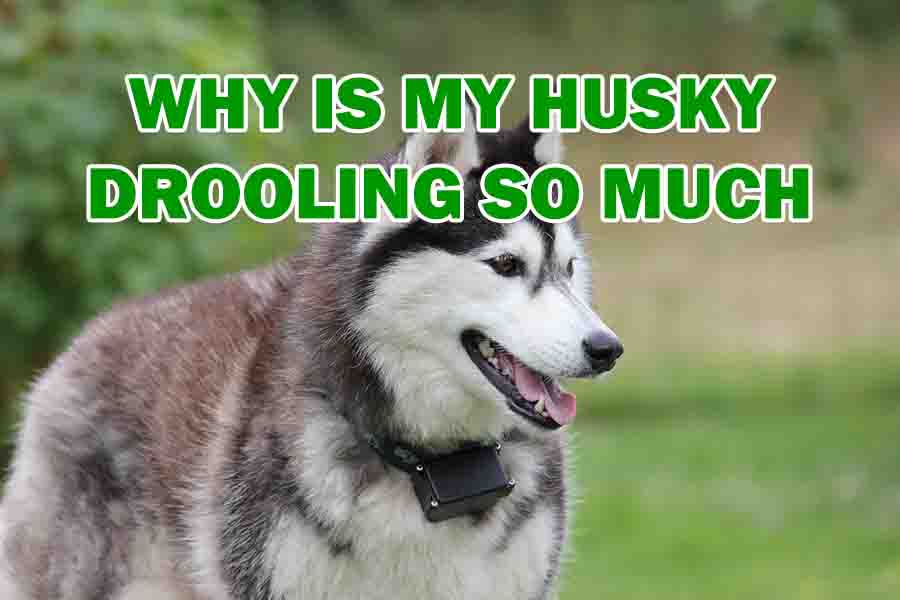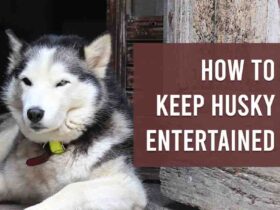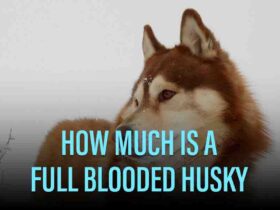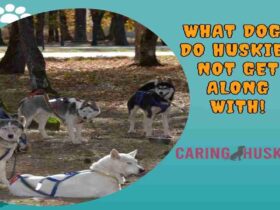Excessive drooling in Huskies can cause concern and curiosity among dog owners. While some level of drooling is typical for this breed, an abrupt increase in salivation can raise questions about a Husky’s health and well-being. In this article, we delve into why your Husky might be drooling excessively. By understanding the potential causes and learning how to manage and prevent them, you can ensure the comfort and health of your beloved canine companion. So, let’s explore the mysteries behind the slobbery smiles of Huskies and find the solutions to keep them happy and healthy.
Why Is My Husky Drooling So Much?
Excessive drooling in Huskies can stem from various benign and concerning factors. It’s essential to first differentiate between normal drooling, typical for this breed, and a sudden increase in saliva production. Potential causes include dental issues, overheating, stress, breed characteristics, dietary factors, and underlying health problems. If you notice a significant and persistent increase in drooling, it’s advisable to consult with a veterinarian to rule out any serious health concerns and ensure your Husky’s well-being.
What Are The Common Causes Of Excessive Drooling?
Excessive drooling in dogs, including Huskies, can be a concerning issue for pet owners, and there are several common causes for this behavior. Understanding these causes is essential to address the root problem effectively. Here are some of the common reasons why your Husky might be drooling excessively:
Dental Issues: Dental problems, such as gum disease, tooth decay, broken teeth, or oral infections, can lead to discomfort and increased salivation. Like all dogs, Huskies should have regular dental check-ups and appropriate dental care to prevent such issues.
Heat and Overheating: Huskies have a thick double coat designed for cold climates. In warm weather, they may be prone to overheating. Excessive drooling can be a mechanism to cool down, as dogs don’t sweat like humans.
Stress and Anxiety: Emotional distress, fear, separation anxiety, or exposure to unfamiliar or uncomfortable situations can trigger drooling in dogs. Identifying and addressing the source of stress can help reduce excessive drooling.
Breed Characteristics: Some dog breeds, like the St. Bernard or Bloodhound, naturally have loose jowls and lip folds, leading to increased drooling. While Huskies are not known for excessive drooling due to their breed characteristics, individual variations can occur.
Dietary Factors: Certain foods or ingredients may not agree with your Husky’s digestive system and can lead to increased salivation. Allergies or sensitivities to specific components in their diet can also be a factor.
Health Issues: Various health conditions, including nausea, respiratory problems, gastrointestinal issues, or neurological disorders, can cause excessive dog drooling. It’s crucial to rule out any underlying medical problems.
Foreign Objects: If your Husky ingests something foreign or potentially toxic, the body’s response may include excessive drooling as a protective mechanism. Keep an eye on what your dog can access and seek veterinary care if you suspect ingesting a harmful substance.
Oral Infections or Inflammation: Infections or inflammation in the mouth, throat, or salivary glands can lead to increased drooling. Regular oral hygiene and dental care are essential to prevent these issues.
Medication Side Effects: Some medications may cause drooling as a side effect in dogs. If your Husky has recently started a new medication, consult your veterinarian to discuss potential side effects.
How Breed Characteristics Can Influence Drooling?
Breed characteristics can significantly influence drooling in dogs, as different breeds have distinct physical traits, including the structure of their mouths and facial features. Here’s how breed characteristics can impact drooling:
Jowl and Lip Structure:
Breeds with loose, drooping lips and jowls, such as Saint Bernards, Bloodhounds, and Bulldogs, are more prone to drooling. These floppy lips and jowls can trap saliva, leading to drool accumulation.
Facial Anatomy:
The shape and structure of a dog’s face can also play a role. Breeds with shorter noses and flat faces, like Bulldogs and Pugs, have a greater tendency to drool because their mouths are less efficient at containing saliva.
Salivary Gland Size:
Some breeds may have larger salivary glands, which can produce more saliva. Breeds like the Mastiff or Basset Hound often have larger salivary glands, contributing to increased drooling.
Drool-Producing Glands:
Certain breeds have developed larger submandibular salivary glands that produce saliva when eaten or stimulated. This can result in more substantial drooling during meal times or when excited.
Breed-Specific Behaviors:
How a breed interacts with its environment can also affect drooling. For example, more active breeds, like Labrador Retrievers, may drool more when they’re excited or panting due to exertion.
Tips For Preventing Overheating And Excessive Drooling
Preventing overheating and excessive drooling in your Husky is essential, especially considering their thick double coat and susceptibility to overheating in warmer weather. Here are more in-depth tips to help you keep your Husky cool and minimize drooling:
Always ensure your Husky has access to plenty of fresh, cool water. Dehydration can exacerbate overheating and increase drooling. Consider using a spill-proof, wide-mouthed water bowl to make drinking easier.
Create a comfortable outdoor environment with shaded areas and shelters. These spaces provide relief from direct sunlight and help your Husky cool down when needed. Shade sails, umbrellas, or doghouses can serve this purpose.
Invest in cooling products like vests, bandanas, or mats designed for dogs. These items use evaporative cooling to help lower your Husky’s body temperature and reduce drooling. Make sure the products are appropriate for your dog’s size and breed.
Huskies are energetic dogs, but they limit strenuous exercise during hot weather. Instead, engage in low-impact activities like leisurely walks, indoor games, or puzzle toys to keep your Husky mentally stimulated without overheating.
Check the temperature of the ground before walking your Husky. Hot pavement can burn paw pads. Walk on excellent surfaces like grass, or use dog booties to protect their paws.
Ensure good airflow in your home and car. Never leave your Husky in a parked car on hot days, even temporarily. The temperature inside a car can rise rapidly, leading to overheating.
Regularly brush your Husky’s coat to remove loose fur and improve air circulation around the skin. Contrary to popular belief, shaving your Husky’s coat is not recommended, as it can disrupt their natural insulation against heat and cold.
Be vigilant for signs of overheating, such as excessive panting, rapid breathing, weakness, or glazed eyes. If you observe any of these signs, move your Husky to a more relaxed area, provide water, and use a damp cloth to cool them down. Seek veterinary help if the symptoms persist.
When To Seek Veterinary Care?
Knowing when to seek veterinary care for your Husky is crucial for maintaining their health and well-being. While some issues may be resolved independently, others require immediate attention from a veterinarian. Here are guidelines on when to seek veterinary care for your Husky:
- Sudden or Severe Illness: If your Husky exhibits sudden and severe symptoms such as severe vomiting, diarrhea, lethargy, or collapse, seek immediate veterinary care. These could be signs of a severe medical condition.
- Difficulty Breathing: If your Husky experiences labored or rapid breathing, wheezing, coughing, or any signs of respiratory distress, it’s an emergency. This could be due to various causes, including allergies, infections, or foreign body obstructions.
- Trauma or Injury: Any traumatic injury, such as being hit by a car, falling from a height, or suffering a bite wound, requires immediate veterinary attention. Even if there are no visible injuries, internal damage may have occurred.
- Seizures: If your Husky experiences a seizure for the first time or has prolonged or recurrent seizures, consult your veterinarian. Seizures can be caused by various underlying conditions that require medical evaluation and treatment.
- Ingestion of Toxic Substances: If you suspect your Husky has ingested a toxic substance, such as chemicals, human medications, toxic plants, or certain foods like chocolate or grapes, contact your veterinarian or a poison control hotline immediately.
- Excessive Bleeding: Profuse bleeding from a wound, nose, mouth, or other areas requires immediate attention. Apply pressure to the wound with a clean cloth or bandage while visiting the vet.
- Eye Injuries: Eye injuries, such as scratches, foreign bodies, or swelling, can lead to severe complications if left untreated. Seek veterinary care if you notice any eye-related issues.
- Persistent Vomiting or Diarrhea: If your Husky is vomiting or having diarrhea persistently, it could indicate an underlying issue, such as gastrointestinal inflammation, infection, or foreign body ingestion.
- Difficulty Urinating: If your Husky is straining to urinate, passing blood in their urine, or unable to urinate at all, it could be a sign of urinary tract problems, which require prompt veterinary attention.
- Lethargy and Loss of Appetite: If your Husky is unusually lethargic and refuses to eat for more than a day, it may indicate an underlying health problem. A veterinarian should evaluate a sudden loss of appetite or energy.
Bottom Line
Being a responsible Husky owner means understanding when to seek veterinary care to ensure your furry companion’s health and happiness. While Huskies are generally hardy dogs, they can face various health challenges. By recognizing the signs and situations that warrant veterinary attention, you can provide timely care and support to address potential issues. Whether it’s sudden illness, injury, chronic conditions, behavioral changes, or preventive check-ups, your vigilance and proactive approach play a vital role in your Husky’s well-being. Remember that your veterinarian is your trusted partner in maintaining your Husky’s health, so don’t hesitate to reach out when you have concerns.
FAQ’s
When should I worry about my dog drooling?
You should worry about your dog’s drooling if it suddenly increases in volume or frequency, is accompanied by other concerning symptoms like vomiting or diarrhea, or if your dog appears distressed or in pain. Persistent, unusual drooling may indicate an underlying health issue that requires veterinary attention.
How long should drooling last?
The duration of drooling can vary based on the cause. Normal drooling typically lasts briefly, such as during mealtime or when excited. If drooling persists beyond a few minutes or becomes frequent, it may indicate an underlying issue, and you should consult your veterinarian.
Is drooling a serious problem?
Drooling is not always a serious problem; some dogs naturally drool more than others. However, persistent or sudden excessive drooling can indicate underlying health issues or discomfort. Identifying the cause is essential, as addressing it may be necessary to ensure your dog’s well-being. Consult your veterinarian for guidance.






Leave a Reply